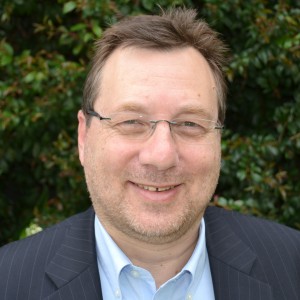
Punching holes in the Matrix
I have always loved the movie ‘The Matrix’. I watched it again recently with my daughter Meaghan, and I can’t help but be struck by the parallels of the situation that Neo, Morpheus and their allies find themselves in the movie, with the circumstances of a growing number of people who are fighting passionately for a change in our culture.
If you have seen the movie, you will know that in ‘The Matrix’, the community is trapped in a world where there is no awareness that anything else outside their perceived world exists, even though there is a world outside. This lack of awareness is through no fault of the community inside the Matrix.
Similarly, the world we live in (across many countries), through no fault of their own, a large number of the general community are unaware that there is a world that exists outside an all-consuming focus on weight and weight loss dieting. They are trapped in a real-life, weight-focused Matrix. Within this Matrix, communities have been sold the idea that the way to health and happiness is just a matter of finding the right diet, that it is simple and easy to achieve the weight of their dreams, and not only that, if weight is regained after a weight loss diet, then it is each individual’s fault, not the result of a diet that was doomed to fail from the outset.

Another parallel in ‘The Matrix’ is that, in the movie, there are fierce protectors of the Matrix. Their job is to make sure the minds of people in the Matrix are not awoken to the fact that there is something beyond the world within the Matrix. These protectors of the Matrix are there to defend it at all costs.
Similarly, in our world, we have protectors of our own weight-focused Matrix. I think we have two main groups protecting and/or creating barriers for millions of people trapped within the weight-focused Matrix. Firstly, those people who are aware that they are protecting the Matrix, namely, the ‘commercial weight loss industry’; and secondly, those who I believe, are unwittingly protecting the Matrix, for example, many health professionals and governments.
The commercial weight loss industry
I have no doubt that most of the business people involved in the commercial weight loss industry are aware of the ineffectiveness of the services and/or products they are selling. They are aware that weight loss dieting is ineffective, that weight loss dieting leads to weight regain for the majority of those who participate in it (therefore ensuring repeat business), and that weight loss dieting confers considerable collateral damage at many different levels.
A number of years ago I was asked to sit on a government committee of invited stakeholders to discuss what the Government of Australia might be able to do to help with the so-called ‘obesity crisis’. As it turned out, I was seated next to the CEOs of two major commercial weight loss companies. As we were waiting for the resumption of the day after the morning tea break at which muffins, fruit, tea and coffee were provided, I couldn’t help but hear the discussion that was going on between the two CEOs. One said to the other as he was munching on an apple,
“You know, I really felt like (eating) the muffin, but I thought (eating) the apple would look better.”
To me, that simple sentence summed up the commercial weight loss industry beautifully – all show and no substance. But what should we really expect? The commercial weight loss industry is a business and it is self-serving. Their primary job is to make money for themselves and their shareholders. And as protectors of the weight-focused Matrix, so far anyway, they have done a very skillful job of creating the perception that they are part of the health community when nothing could be further from the truth. They have done an incredible job of camouflaging truth and evidence, and they have been brilliant at protecting their business, and by so doing, protecting the research evidence and the truth from the community, and thus protecting the weight-focused Matrix.
Health professionals and the Government
As for the two groups that unwittingly protect the weight-focused Matrix, let’s look at health professionals first. As incredible as it is, at best there is very limited, and often no real training on the relationship between weight and health (at both undergraduate and postgraduate levels), in almost all, if not every, different health professional group (certainly in Australia). This includes, but is not only confined to health professionals that many people consult with for advice specifically in this area of health such as doctors, dietitians, and psychologists. Due to this lack of training, there is very little understanding of this complex health issue. To fill the gap in training, it should be no surprise to any of us that the current weight-focused paradigm becomes the default position for many health professionals. And thus many health professionals continue to unwittingly protect the weight loss dieting, weight-focused Matrix.
Many governments have also become unwitting protectors of the weight-focused Matrix. Unfortunately their framework and understanding is often built from those who speak loudest (and from those who often have the most money to make a noise), and their effectiveness is most often limited to what is of benefit for them in short election cycles. From misguided so-called ‘community service announcements’ to full-blown media campaigns that have used a shaming approach in an attempt to create change (for example in the USA, ‘Stop sugar-coating it Georgia’ and in Australia, Western Australia, ‘The Toxic Fat campaign’), governments have inadvertently and unwittingly continued to protect the weight-focused Matrix.
Can we really crack the weight-focused Matrix?
I think it is understandable to wonder if we could ever really crack the weight-focused Matrix. Could it really be possible for there to be no more weight loss commercial organisations selling their wares? Could it really be possible for us not to be bombarded with advertisements for meal replacements, quick-fix exercise equipment and quick-fix weight loss programs? Could it be possible for the present common cultural paradigm of weight being a matter of ‘energy in energy out’ ever change?
I believe it must, it can, and it will. In not too long, I am confident that people will be looking back at this period of time in amazement. And they will be wondering how communities could have bought into the whole weight-focused paradigm for so long.
I believe in years to come, people will be reflecting back on this time and saying things like:
How could we have thought that weight loss dieting could help people be healthy?
How could health professionals become so obsessed with a person’s weight that they lost sight of looking after the person?
How could the weight loss industry become so ubiquitous for a number of decades when the evidence was clear that its methods didn’t help and were harmful for so many?
And looking back at history, it is amazing how relatively quickly things can change. Let me share with you two examples to highlight how things that are accepted as truth at one time, can, in the future, be seen for what they really are.
The first example is from the early 1960s, when a brand of sedative medications, promoted particularly for pregnant women, was being marketed by the relevant pharmaceutical company as being particularly safe. The medication was called Distaval and the generic name: Thalidomide.
The second example I want to highlight was discussed in a tremendous book entitled ‘The Heroic Client’ by Duncan, Miller and Sparks. The story is about the 67–year-old former President of the United States, George Washington. The story goes that on one particular day, Washington was out riding his horse and started to feel unwell with a sore throat. On returning home from his horse riding, his condition gradually worsened. The next day, three doctors were called in to assess the situation. The physicians prescribed and delivered the best treatment of the day. After a period of time, with no change in his condition, the three doctors agreed that more of the same treatment was required. Unfortunately Washington deteriorated further and despite two additional treatments, he died. What was this treatment that was regarded as the best accepted panacea for the time? Bloodletting.
I think these two examples highlight beautifully how things at a certain time in history can appear to be the right thing to do. However, with time and greater understanding, they would be the last thing used to help or treat a certain condition.
Punching holes in the Matrix
The good news is that already there is a growing awareness of how harmful our current prevailing perspective is about this issue, and how life is possible outside the weight-focused Matrix. We are just starting to gain some traction on many levels. And as momentum builds towards the inevitable shift away from a weight and weight loss dieting focus, we can all contribute to punching holes in the weight-focused Matrix in our own way, right now.
With every person with whom we share a comment, a thought, or a story that has a focus on wellbeing rather than weight loss, we punch another hole in the Matrix. With every positive media article, blog and tweet, we punch another hole in the Matrix. For every health professional who supports each and every patient or client they see with a focus on wellbeing rather than on weight loss, we punch another hole in the Matrix.
With every Health At Every Size® and like-minded talk that is given to the general public, we punch multiple holes in the Matrix. With every Health At Every Size and like-minded training program delivered to health professionals, we punch multiple holes in the Matrix.
And with every government and workplace that starts to understand the short and long term benefits of taking a person-centred, wellbeing, Health At Every Size approach to health and healthcare delivery, we create more and more opportunities to punch holes in the Matrix.

Dr Rick Kausman, MD MBBS, FACPM Dr Kausman is a medical doctor who is recognised as the Australian pioneer of the person-centred approach to healthy weight management and author of the award-winning, ‘If Not Dieting, Then What?’ and has had several articles on healthy weight management published in peer-reviewed journals. Dr Rick is also a Director of The Butterfly Foundation and a Fellow of the Australian College of Psychological Medicine. More information about Dr Rick can be found at his web site, If not dieting.



